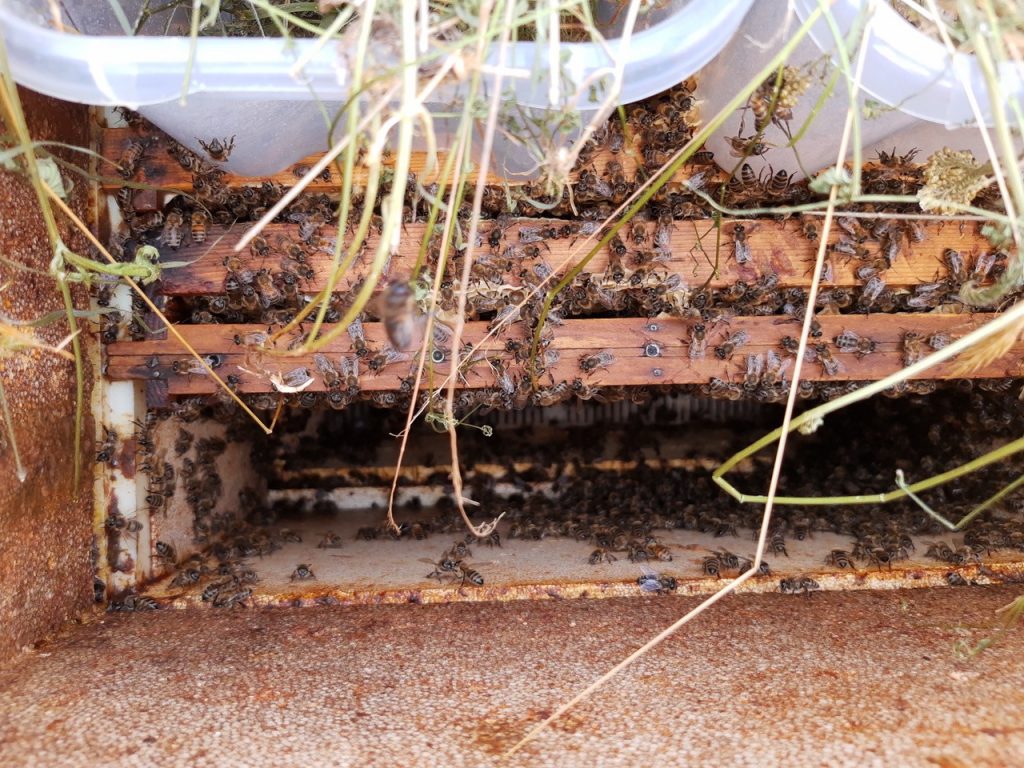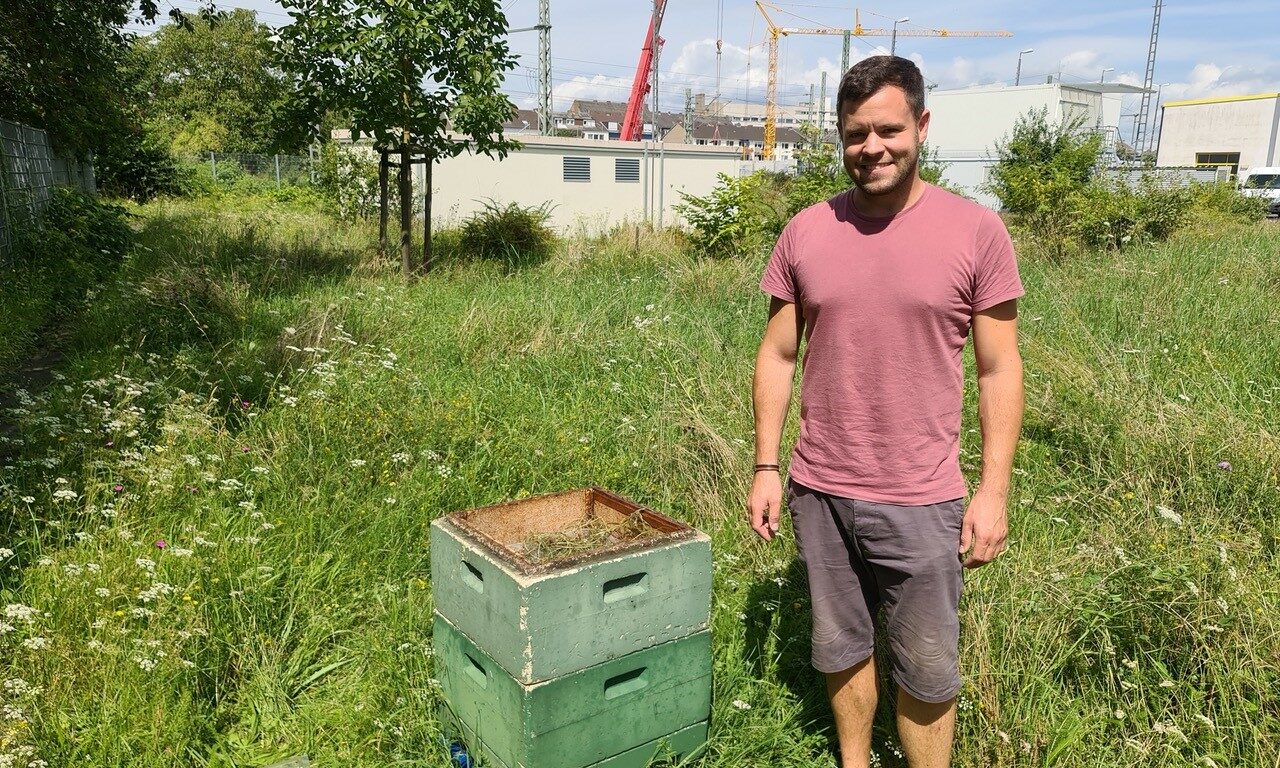Since last summer, Transdev’s rail operation, Trans Regio’s premises in Koblenz have been buzzing with activity. Several bee colonies live away from the railroad tracks. Tobias Gierke, Workshop Manager at Trans Regio, brought the new co-inhabitants to Trans Regio and and we sat down with Tobias to learn more.
Tobias, two bee colonies have been living on Trans Regio’s premises since the summer of 2021, and that raises questions. Tell us how you came up with this idea.
Well, in principle I think it’s important that even larger companies address the issue of environmental protection. For example, avoiding plastic waste, reducing waste in general, separating it, and so on. I think it’s very interesting to see what opportunities there are to do something for the environment. Here on the company premises, we have very good basic conditions for doing one thing or another. There are large areas and meadows with flowers. At some point, I thought it would be a good idea to settle some bees here with us.
Where do the bee colonies come from?
The breeder who has provided them is called « Bienenmichel » and has a website. It is the beekeeper Michael Weisgerber from Koblenz. I received the tip to contact him from our landscape gardener working for us.
Michael then met with me at the depot, and we determined that we had the necessary conditions on the premises and that the site was suitable for the installation of beehives. In each of the hives lives a bee colony with its own queen.
Was Michael able to deliver the bees directly?
The delivery took some time. We met in March or April 2021, and unfortunately the weather was very bad then and he wanted to wait until it got better. Then towards the end of May 2021, he put the hives here on our property.
In the meantime, I had still commissioned our landscape gardener to plant pastures with wildflowers on three areas. This seed mixture consists of a variety of different flower seeds, the plants of which will eventually bear flowers that particularly attract bees.
Do you know how many bees are currently on the site?
In summer, a bee colony consists of up to 50,000 bees. In winter, there are fewer of them, and the colony shrinks to 8,000 to 12,000 bees per hive.
In what radius do the bees move?
They move within a radius of 3.5 kilometers, so they also collect nectar outside our grounds.
How old does a bee colony get?
The queen can live up to five years but is usually replaced by the colony after about three years. By the way, the queen that the hives give us lays 2,500 eggs a day. That is five times the own body weight. The worker bees live three weeks, the winter bees nine months, and the drones also three weeks.

What is currently happening with the bee colonies?
The boxes are made ready for winter as early as July. This is because the wildflowers have already withered, and the bees can no longer find food. The bees are now fed, among other things with protein, so that they can survive the coming winter.
And what happens to the honey that the bees produce?
Most of the honey is harvested by « Bienenmichel », and we receive a share. The honey is usually harvested in May of the following year. In winter, bees need 15 to 18 kilograms of honey to survive. A hive can then yield 20 to 40 kilograms during the harvest.
Will there be more hives on the site?
We currently have three hives on our premises. But we want to expand the project further. Therefore, more hives will be added soon.
How have your colleagues reacted to the initiative so far?
So far, the reactions of those I have led to the boxes have been positive throughout. Everyone thinks the initiative is a great idea. Sometimes it’s quite easy to do something for the environment against bee mortality.

